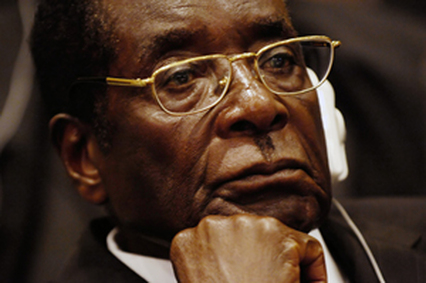POLITICAL BACKGROUND
Archaeologists have found Stone Age implements and pebble tools in several areas of Zimbabwe, suggesting human habitation for many centuries, and the ruins of stone buildings provide evidence of early civilization. The most impressive of these sites are the "Great Zimbabwe" ruins. Evidence suggests that these stone structures were built between the 9th and 13th centuries A.D. by Africans who had established trading contacts with commercial centers on Africa's southeastern coast. In the 16th century, the Portuguese were the first Europeans to attempt colonization of south-central Africa, but the hinterland lay virtually untouched by Europeans until the arrival of explorers, missionaries, and traders some 300 years later. Successive waves of Bantu peoples from equatorial regions supplanted the original inhabitants and are the ancestors of some of the region's Africans today. The British South Africa Company was chartered in 1889, and the settlement of Salisbury (now Harare, the capital) was established in 1890. In 1895, the territory was formally named Rhodesia, after Cecil Rhodes, British colonialist who obtained a concession for mineral rights from local chiefs. In April 1964, Prime Minister Winston Field, accused for not moving rapidly enough to obtain independence from the United Kingdom, was replaced by his deputy, Ian Smith.
In the 1960s, the British Government imposed unilateral economic sanctions on Rhodesia and requested other nations to do the same. In 1976, because of a combination of embargo-related economic hardships and the pressure of guerrilla activity, the Ian Smith government agreed to a meeting in Geneva with black nationalists leaders-Joshua Nkomo, Robert Mugabe, Bishop Abel Muzorewa, and Ndabaningi Sithole-to negotiate a final settlement of the conflict. Robert Mugabe's Zimbabwe African National Union (ZANU) Party won an absolute majority in elections and was asked to form Zimbabwe's first government. The British Government formally granted independence to Zimbabwe on April 18, 1980. In the 1985 elections, ZANU increased its majority, holding 67 of the 100 seats under Robert Mugabe's presidency. ZANU-Patriotic Front (PF) won an overwhelming victory at legislative elections, which took place on April 8 and 9,1995. This was followed by the theft of white farmers land which was given in small parcels to thousands of poor Black farmers who are without the means to farm it efficiently. In the past ten years, the government has slipped into a single-party dictatorship, and the economy has crashed, throwing hundreds of thousands of citizens into abject poverty. Opposition parties have been oppressed, and poor peoples' homes have been demolished for political reasons.
_

